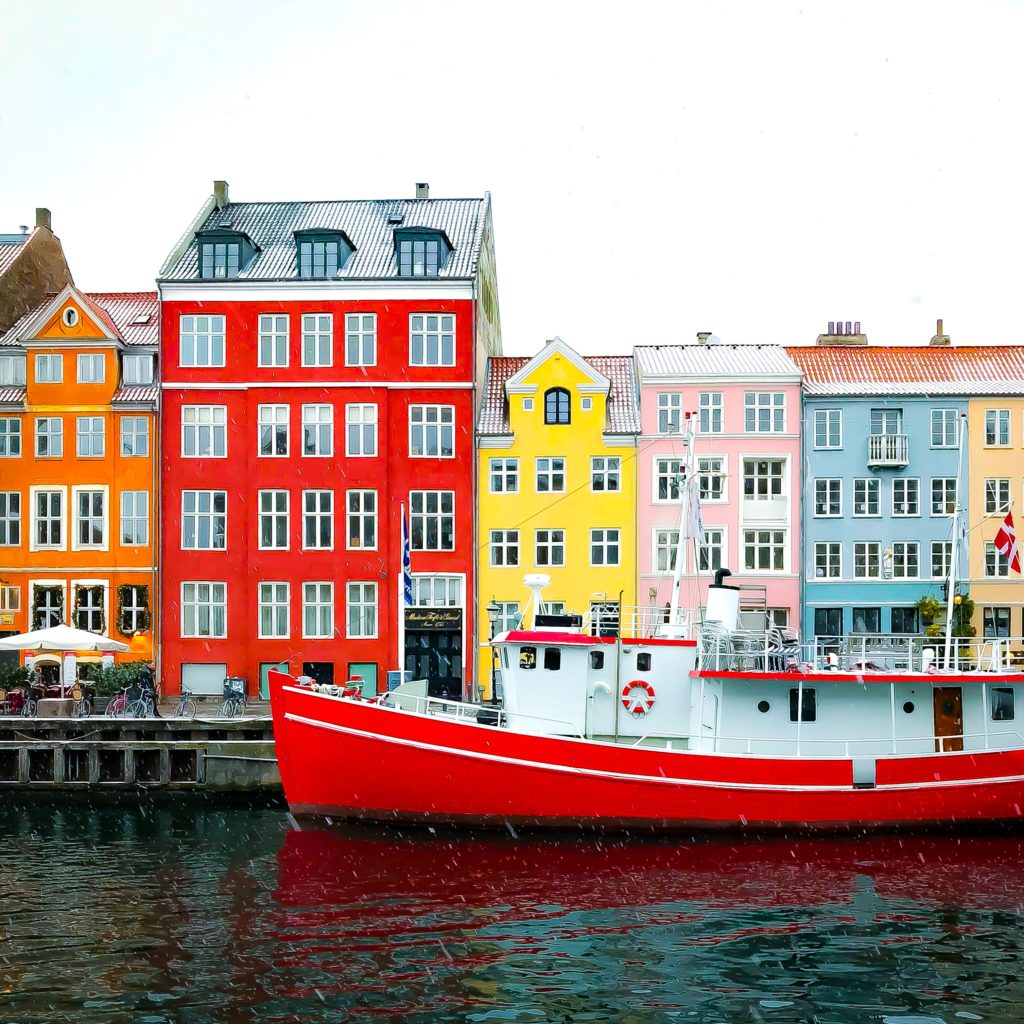Denmark is a Scandinavian country and one that most of us dream of living in. A rich and refined culture, magnificent sceneries, booming economy, marvelous standard of living, lively population, welfare programs, and world-class education are just a few features that make Denmark, a heaven on Earth.
Since Denmark is a member of the European Union (EU) and part of the Schengen pact, EU residents don’t require a visa to enter or stay in the country as long as they please under the EU regulations. Non-EU residents however are required to follow a detailed procedure to enter, travel, and work in Denmark.

This article focuses on various ways in which a person can move to Denmark on a permanent and long-term basis. A simple Schengen visa is good for 90 days, which allows the holder to travel freely in and out of the Schengen states, however, the visa does not permit work or employment of any sort. Aspirants wishing to stay any duration longer than 90 days must acquire a temporary residents permit before coming to Denmark.
Work permits & employment-based visas
Though it is particularly difficult to obtain residency for non-EU citizens, it is encouraging to know that there are various ways to acquire a residency status and work permit in Denmark.
Student visa
Observation shows that the most common method for people in their late 20s and early 30s is by gaining a student visa. Admissions to a degree program in your choice of the university are straightforward. Just by applying online and paying the subscribed fee, you will be enrolled in the degree program you plan to pursue, provided your documentation and credits meet the specified criteria.
Successful admission to a university will automatically trigger the Danish immigration services to initiate the residence permit process (ST1). The second set of applications has to be filled once you get the access code to the ST1 platform (online portal). At this stage, you will be required to pay the fee and attach all the required documentation to the Danish Agency for International Recruitment and Integration. If your application is filled according to desired standards, and the fees are paid in full, the process will normally take up to 60 days.
Work permit
A work permit enables the holder to live and work in Denmark and though there are sub-types in work visas too, the procedure and steps that are common to all subtypes are detailed in the following paras. The process can only be initiated after you have a job offer or employment contract with a Danish company. There are plenty of websites and recruiters that you can engage in while seeking suitable employment in Denmark. We will revisit the employment and job-seeking methods later in this article.
Creating a case order ID is the initial step. This can be done by the applicant or an agency on their behalf if the applicant has awarded the power of attorney to the latter. As you create the case order ID you will be required to pay the prescribed fee, depending on the work permit type, in full. Next up, you will need to submit all and any documents the immigration demands within the deadlines. Generally, the required documents include, but are not limited to:
- Proof of paid fees (receipt)
- A valid copy of your entire passport including front and rear cover.
- Employment contract/job offer letter
- Educational documents, experience letters, character certificates, etc.
Once the fees and documentation are submitted, you will be required to fill out another form online. The first part of this form is to be filled by your employer, which will generate a passcode for you to access the second part of the form, to be filled by the employee, in this case, you. Now comes the part where you share your biometric details and wait for a maximum of 30 days for the response.
Fast track scheme visas
People at the top of their fields, big achievers, and outstanding performers who have been contracted by a Danish company can benefit from the fast-track visa scheme. As the name suggests, the process is speedy as the application process is handled by the employer. The deciding factor for illegibility is the pay limit (exceeding US$ 63,000 annually), researcher, and educationalist.
Arranging accommodations
Unless the university or your employer assumes the responsibility for your accommodation, you will be required to submit proof of accommodation before moving into the country and after you get your desired permit/visa.
Properties in Denmark, especially Copenhagen and Aarhus are few and expensive, it is highly recommended that if you are moving alone initially you may want to rent initially. Better still, find a suitable flat or roommate to share the rent with. Later as you assimilate and manage some savings, you may either rent out your apartment or try for a bank mortgage. Rental for a one-room apartment is usually between US$ 800-900 per month in the city center and US$ 500-600 outside the city center.
Finding employment in Denmark
Since more than 40% of the employment in the country is provided by the state, it is important that you are familiar, and in some cases, fluent in the Danish language; fluency in English may not be seen as a qualification as most of the Danes speak fluent English. Depending on your education, years of experience, skills, and qualifications you must be active on social platforms and communities where Danish recruiters, international expatriates, and same-skill individuals are members.
You may also want to engage a recruiting agency, in and outside Denmark. And most importantly, focus on the entire EU and EEA region rather than converging all your energy on Denmark alone. As stated earlier, an EU citizen doesn’t require a visa or work permit to live and work in Denmark.


